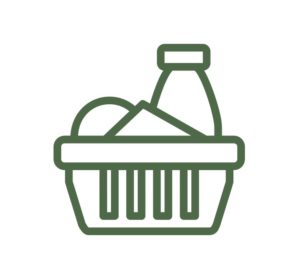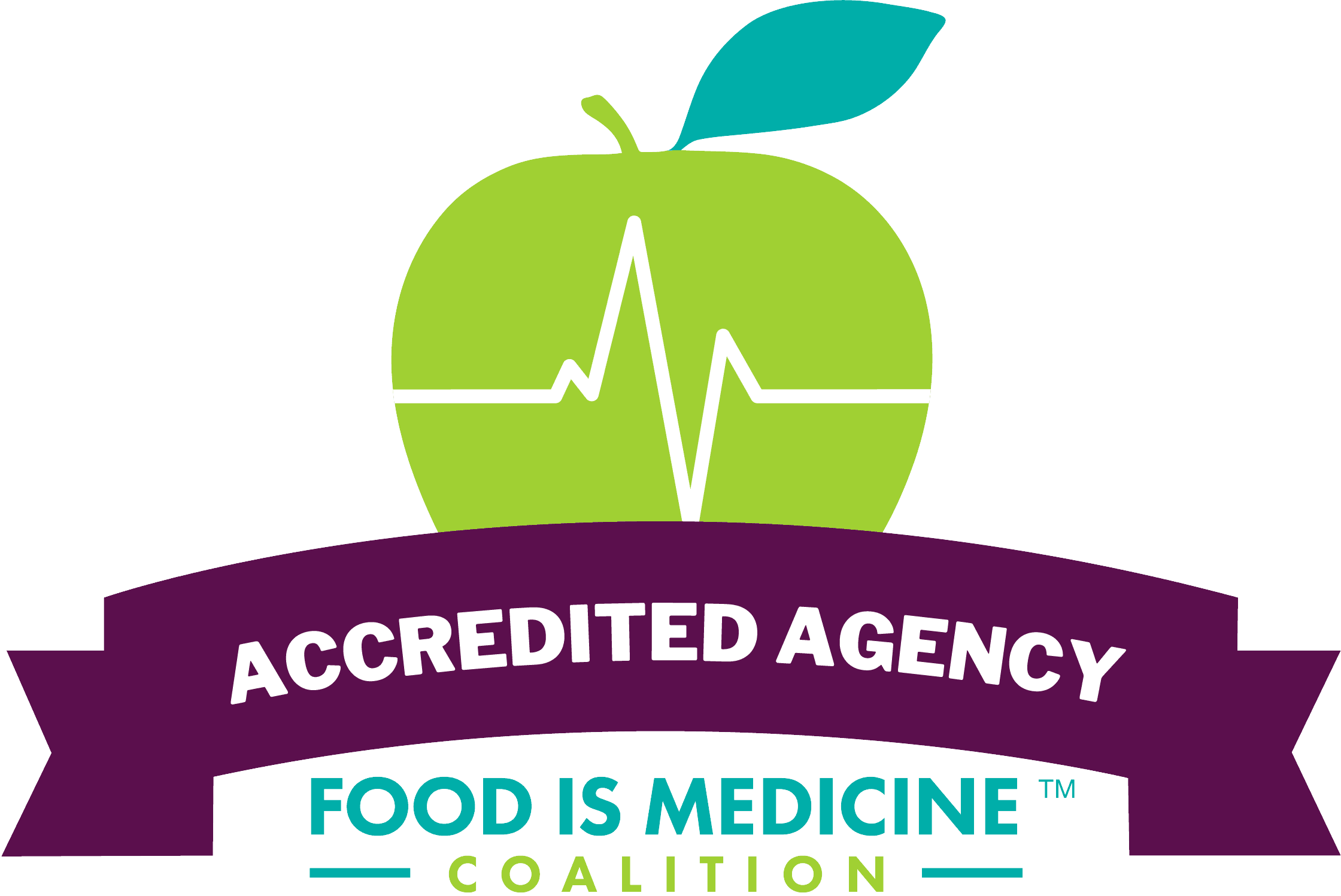By Lexi Striler, Director of Nutrition Services, Mama’s Kitchen
Everyone always assumes the holiday season is the most challenging time for maintaining healthy eating habits, with all the sweets and hearty meals around. But it’s common to overlook how challenging summer can be too.
Your home may not be littered with Halloween candy or overflowing with Thanksgiving leftovers, but over the last few months, you’ve likely encountered more hot dogs, hamburgers, and ice cream than you can count and consistently battle cravings for a tasty cold treat amid the summer heat. Let’s not forget the monstrously incredible food offerings San Diegans get to sample at the annual county fair.
Though the summer brings added pressure to look your best, I want to stress that looking your best is not nearly as important as feeling your best and taking care of your health. Being mindful of your nutritional intake and simply thinking more critically about what you choose to eat this summer will give you more energy, improve your mood, and lower your risk for health complications.
Most fad diets, especially those that become popular in the summer, are focused on grueling eating plans that promise quick weight loss. These diets are rarely maintainable, aren’t always scientifically proven, and oftentimes neglect nutritional satisfaction in the name of weight loss. It’s better to prioritize more holistic, manageable lifestyle changes that will improve your nutritional intake and help you maintain your health throughout the year.
Making a diet change is hard, but starting is usually the trickiest part. So here are five tips that will help you start and maintain healthy eating habits during the summer.
1. Eat In-Season Produce
One of the best parts of summer is the amount of fresh fruits and vegetables that suddenly become plentiful–so take advantage of that! Sure, you can eat most produce year-round but produce harvested at peak season can ripen more naturally and contain higher levels of nutrients than off-season crop yields. In-season produce is far more flavorful, too.
Berries, stone fruits (like apricots, peaches, and mangoes), melons, tomatoes, corn, zucchini, and eggplant are all summer fruits and vegetables that you can easily incorporate into your diet. You should include fresh, in-season produce in every meal. That could mean having a bowl of raspberries with your breakfast, roasting an ear of corn on the grill at your next barbecue, or making homemade pico de gallo for your next taco Tuesday.
2. Prioritize Hydration
Regardless of your level of physical activity, hydration is crucially important, especially during the hot summer months. The heat causes your body to work harder and sweat more, meaning you lose water faster. Your summer diet should reflect the dehydration your body faces.
Luckily, fruits and vegetables are loaded with hydrogen and oxygen, meaning you can eat your necessary water intake as well as drink it! Cucumbers, celery, iceberg lettuce, radishes, and tomatoes are particularly high in water content and can easily be added to salads and sandwiches. Tricks to help you drink more water throughout the day also include adding a touch of flavor like lemon or orange slices or a few fresh-cut strawberries and mint leaves. Try to get most of your hydration from water and limit high-sugar beverages like sodas, coffees, lemonades, and fruit juices. Staying properly hydrated will give you more energy throughout the day, curb your hunger, and drastically reduce your risk of heat stroke.
3. Embrace Substitutions
One of the biggest reasons people fail diets is because they feel like they have to completely cut out the foods they love. But this isn’t entirely true! Along with limiting those tasty treats to special occasions, you can also find healthier alternatives to comfort foods that will satisfy your cravings while still providing nutritional value.
Rather than eating traditional blue box mac n’ cheese, make your own homemade version using chickpea pasta and a low-fat cheese sauce made with cottage cheese and sharp cheddar. If you’re craving the sweetness of an orange soda, try eating clementines instead, which have natural sugars that will satisfy your sweet tooth while also giving you a great source of vitamin C and fiber. If you’re having trouble saying no to potato chips, try busting out the air fryer to make salted kale chips or red cabbage crisps instead.
4. Know the Difference Between Good and Bad Fats
When you hear the word “fat” your brain probably also hears “bad!” Fortunately, not all fats are bad… In fact, some are incredibly necessary for proper nutrition. Knowing the difference between good fats and bad fats will help you maintain a healthier and more nutrient-rich diet.
Unsaturated fats are known as “good fats” because they are good for your heart and can lower or maintain your cholesterol levels. Most fish, like salmon and tuna, contain excellent sources of good fats like omega-3 fatty acids. Avocados, olive oil, and most nuts are also great sources of good fats that you should regularly incorporate into your diet.
“Bad fats” are a little more complicated, falling into two categories– saturated fats and trans fats. Both types of bad fats increase your risk for heart disease and should generally be avoided, though saturated fats are considered “less healthy” fats that can be eaten sparingly while trans fats should be avoided entirely. Saturated fats are typically found in animal products and trans fats are most often found in processed foods. To avoid bad fats, choose leaner meats and low-fat dairy products and try to cut out as much processed food as possible.
5. Sign Up for a Medically Tailored Meal Program
For individuals with a chronic or serious health condition such as diabetes, heart disease, or kidney disease, medically tailored meal programs are a fantastic way to ensure you’re getting the right nutrition while staying away from fats, sugars, and other potentially harmful foods and ingredients. Medically tailored meal programs, like those provided by Mama’s Kitchen, use each meal as a vehicle to improve your overall health. Every meal is carefully crafted to meet your exact nutritional and medical needs, helping your body battle potential health crises.
Medically tailored meals are a key part of the growing food is medicine movement and are being embraced by food organizations and healthcare providers around the country.
Summertime is meant to be filled with fun in the sun and relaxation, and with that comes a lot of tempting foods that, while tasty, may negatively impact your mental and physical health. With these five tips, you can avoid temptation and get back to making the most of your summer. Are you interested in learning more about medically tailored meals and Mama’s Kitchen? Learn more about our meals here.
 Make a one-time or a monthly donation today!
Make a one-time or a monthly donation today! 





